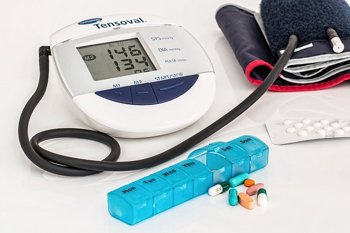Optimisation of inhaled corticosteroids for COPD patients in West Cheshire
Wednesday, 24 November 2021

Background
RightCare data for West Cheshire Clinical Commissioning Group (CCG) published in 2016 showed high incidences of flu and pneumonia and high levels of prescribing spend on inhaled corticosteroids (routinely within the top 10 cost drugs for each practice). Furthermore, West Cheshire CCG prescribing costs for tiotropium were the highest in England. This project set out to improve patient care by optimising the prescribing of inhaled corticosteroids in COPD patients.
Action
Using the knowledge and communication skills of pharmacists in a face-to-face setting with patients, we aimed to improve patient health, concordance and inhaler technique, whilst reducing safety risks and prescribing costs associated with these drugs.
Pharmacists worked one day per week in five practices for three months liaising closely with practice respiratory nurses and the lead respiratory GP. GOLD criteria and local COPD guidelines were used to identify patients potentially suitable for step-down and/or stop of inhaled corticosteroids. These patients were invited to attend the practice for a consultation with a respiratory nurse or pharmacist, bringing all inhalers, including excess, with them. Where appropriate, step-down of inhaled corticosteroid dose was recommended and patients were followed up to ensure they were managing the new regime without experiencing any problems. Changes to cost-effective dry powder inhalers or metered dose inhalers with a spacer device were instigated where appropriate.
Patients not suitable for step-down were reviewed by a pharmacist and inhaler technique was checked and demonstrated. Domiciliary visits were carried out for patients not able to attend the practice.
Impact
This project quickly delivered improvements in patient care as well as cost efficiencies. By the time it had reached 84 per cent completion we had made:
- 57 quality interventions to improve patient care, experience and outcomes
- cost efficiencies of £28,682.67 (surpassing our end target of £26,000).
An added benefit was that the role of pharmacist was developed and promoted within GP practices.
Due to the success of this pilot project we plan to roll this work out across all GP practices in West Cheshire and across our other medicines management and optimisation teams. Future work will focus more specifically on the step-down and/or stopping of inhaled corticosteroids in suitable patients.
Given the clinical benefits to patients and cost improvements demonstrated, we are encouraging our practice pharmacists to work closely with practice nurses and GPs to improve medicines optimisation in patients with chronic obstructive pulmonary disease (COPD).
